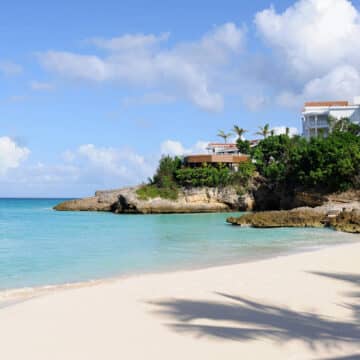By Dennis Chung
CJ Contributor
THE recent Jamaica Observer report that 7,000 professionals have left Jamaica over the past few years has received much attention. We all know that teachers, nurses, engineers, accountants, and other professionals have been making the trek up north in the hope of either finding employment or seeking better salaries.
This “brain migration” is definitely the best way to exploit the value of these trained minds, primarily through remittances. The greater value is to have them stay in Jamaica and contribute their minds, through ideas and innovation in services and products. You only have to think about the impact of someone like Steve Jobs on the American economy versus any remittances that might have been sent back to another country.
In other words, the value of one idea can be worth much more than the remittances from one million or more people on the economy where the idea is developed.
The question we should ask ourselves is, how can Canada, or the US, compensate Jamaican-trained professionals more than we can afford to do?
Why can’t we pay our own professionals more than they can demand in another country? For example, why are Jamaican-trained teachers and nurses able to command higher salaries in North America, and other countries, than they do here?
After all, the act of a plane trip doesn’t automatically transform them into higher-earning individuals.
It is important to understand this if we are to seriously attack the problem of relatively low wages in Jamaica, and my view is that the reason for this imbalance has to do with the size of the private sector in the economy in relation to the size of government.
In other words, private sector-led economies are always, on the whole, more productive and innovative, and it is productivity and innovation that drive value, which in turn drive financial reward, whether at the organizational or personal level.
This drive for productivity and innovation is, of course, driven by the profit motive, as economics teaches us. In other words, people will always find ways to be more productive and innovate in circumstances where they are rewarded with something they desire. So the motivation doesn’t necessarily have to be money.
However, our motivations are driven by what Organisztional Behaviour studies refer to as Maslow’s Hierarchy of Needs. In other words, at the basic level man is motivated by food and shelter, but after he acquires enough food and shelter his motivation is more influenced by other things such as clothing style, car, house, education, etc.
At the highest level the motivation is self-actualization, which is why many billionaires become philanthropists. That is because they are more motivated by being recognized for doing good than for making much more money.
It is this same reasoning that drives the profit motive for companies, that causes economies to grow, value to be added, and similar employees in prosperous countries to be rewarded more than poorer countries.
And it is the absence of this structure that has caused relatively lower wages in Jamaica. In other words, the declining levels of productivity in Jamaica have been the primary problem, which simply means that if your output per hour is declining, then obviously your income per hour must also be declining.
So the key to greater wages, and ultimately sustainable economic growth, is to improve productivity. It is therefore important to understand what causes our declining productivity and the consequence of relatively lower GDP per capita and lower wages.
Arguments are made that the high level of public sector employment is a major problem. However, when you compare Jamaica’s percentage of workers in the public sector to other countries like the US and UK, the rates are pretty similar. In fact, some countries that have had significant economic challenges have had a lower rate employed in the public sector.
This is because it is not how many people are employed in the public sector but rather what are the productivity levels in the public sector, in terms of delivering public services and goods. In other words, the efficiency of the bureaucracy is key to determining productivity and explain why bureaucracy is such a big inhibitor to Jamaica’s growth.
What is also important for the private sector is that greater facilitation is made for the more innovative ideas to succeed and for workers to be rewarded based on their productivity. And this is the reason that the minimum wage by itself cannot improve living standards, even though a minimum level is important to prevent exploitation. Moving wages by legislation does not guarantee improved living standards; instead, it has the opposite effect of increasing inflation.
So in both the public and private sectors the only real living standard improvements must come from greater productivity and innovation through delivering goods and services that consumers want. Simply increasing productivity and being innovative do not, by themselves, guarantee greater financial returns, but must be coupled with a consumer demand for what is being produced.
How does the private sector address this? If a company produces goods and services which are not in demand, that company will go out of business. On the public sector side, however, this must be carefully looked at by the policy makers to ensure that whatever services are being provided are in demand.
So duplication of effort by public sector bodies or legislating that the public pay for unnecessary services is merely increasing costs and reducing productivity. Also, providing much-needed services inefficiently has the same effect.
This is why the legislative and competitive environment changes being undertaken under the current economic and monetary programme are so important, and welcome. However, it must go further to ensure that the delivery of services by the bureaucracy is as efficient as it can be.
If we can achieve this, and ensure that we facilitate the profit motive of the private sector (ensuring, of course, it is legal, fair, and accessible to all), then we will eventually start seeing greater productivity and wages moving to the levels of other countries.
Dennis Chung is a chartered accountant and is currently Vice President of the Institute of Chartered Accountants of Jamaica. He has written two books: Charting Jamaica’s Economic and Social Development – 2009; and Achieving Life’s Equilibrium – balancing health, wealth, and happiness for optimal living – 2012. Both books are available at Amazon in both digital and paperback format. His blog isdcjottings.blogspot.com. He can be reached at drachung@gmail.com.







